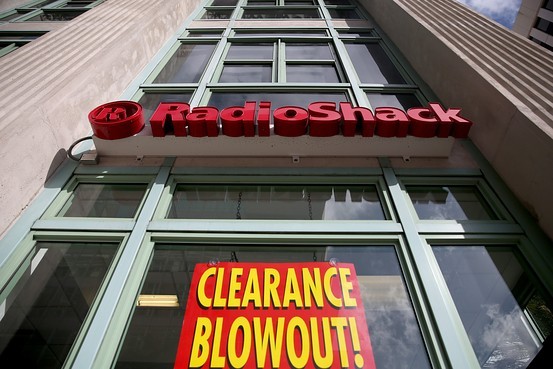DistressedDebt Investors Eye Asia MoneyBeat
Post on: 16 Март, 2015 No Comment

Hedge Funds
As Asias economic growth sputters and banks face the prospect of rising bad debts, credit-focused hedge funds and private-equity firms are seeking opportunities to buy distressed debt.
While investors in distressed credit in the region have been most active in Australia, they are starting to spot signs of trouble in other markets such as China, South Korea and India, particularly after a recent boom in corporate-bond sales sent debt levels higher.
Many of those bonds will be up for refinancing in a few years, said Michel Löwy, chief executive of Hong Kong-based hedge fund SC Lowy, which invests in distressed debt.
Distressed-debt investors buy bonds or bank loans of a struggling company at a discount and can reap big returns if the performance of the company or assets linked to the debt improves.
Corporate debt in Asia now exceeds 2008 levels, Lowy said, citing India and Korea as examples of economies where nonperforming loans are starting to tick higher. He also singled out the shipping sector, which is suffering from overcapacity and declining demand.
In January, SC Lowy was part of a group that gave a credit line of $85 million to Korea Line Corp. which filed for bankruptcy protection in early 2011 and is trying to sell a controlling interest in itself after a failed attempt early this year.
U.S. investment fund Elliott Group is investing in Japan’s Sanko Steamship Co. the shipping line said last week, without elaborating. The company filed for protection from creditors in July 2012.
According to a Standard Chartered PLC report, China’s corporate sector is the “most leveraged and solvency-challenged” in Asia, followed by South Korea, particularly among the latter’s small to medium-size companies.
Standard Chartered estimates that China’s total debt increased to 214% of GDP at the end of the third quarter of 2012 from 201% a year earlier, with corporate debt fueling most of that increase.
Standard Chartered said Tuesday it took a $1 billion write-down on its Korean business in the first half of the year, citing rising bad debts in the country.
A recent global selloff in bonds, meanwhile, has hurt debt prices of Chinese property developers that flocked to issue high-yield bonds earlier in the year. Yields are now rising, driving up the costs of refinancing.
“Chinese policy decisions will have a significant effect on the Asian high-yield market, especially property names, and we believe opportunities will arise,” said Chris Mikosh, partner and co-founder of Hong Kong-based hedge fund Tor Investment Management (Hong Kong) Ltd. and formerly of Goldman Sachs Group Inc.’s Asian Special Situations Group.
Tor, which was launched this year, focuses on credit in Asia.
With signs pointing to rising bad debts in Asia, some credit hedge funds are raising capital.
Geoffroy Wallier, a former banker at Royal Bank of Scotland Group PLC who is raising money for a hedge fund to invest in debt, said he expects Asia’s debt market to continue to increase in size, but there will “probably be more defaults in the future.”

His fund, Orfi Capital Ltd. aims to raise a $40 million to $50 million Asia-focused credit hedge fund this year. Wallier declined to comment on whether his fund will invest in distressed debt.
Despite increasing opportunities in Asia, Australia remains one of the biggest markets for distressed-debt investors in the region.
In Australia, hedge funds and the proprietary investment arms of investment banks, such as Goldman Sachs’s Special Situations Group, have been snapping up loan portfolios being unwound by banks, particularly European lenders. The Goldman unit bought some of Brisbane-based Suncorp Group Ltd.’s loans for about 960 million Australian dollars (US$863 million) in June.
Private-equity firms are also entering the arena. KKR & Co. said this month it sees increasing investment opportunities in credit in Asia, particularly in Australia. KKR and other funds such as Blackstone Group have been buying up slices of distressed property loans from Lloyds Banking Group PLC’s BOS International unit in Australia in recent years.
Some investors believe defaults in Asia could stay low, as in the aftermath of the 2008 financial crisis. At that time, distressed-focused hedge funds hoping to capitalize on corporate defaults were disappointed by a lack of opportunities. That is partly because Asian banks and governments often prefer to bail out companies in trouble rather than put them under the control of foreign investors such as hedge funds.
But there are signs that attitudes might be changing. While an enormous government stimulus package in 2008 kept China’s economy in good health, Beijing is now recognizing that overcapacity in certain industries could be a drag on economic growth. Shipbuilding, cement and solar panels are some of the industries Beijing has said it would take a tougher stance on.
China Rongsheng Heavy Industries Group Holdings Ltd. for example, which said in July it is seeking financial help from the government and shareholders, is turning to private capital. Last week, the shipbuilder said it plans to issue 1.4 billion Hong Kong dollars (US$180 million) worth of convertible bonds to a unit of Hong Kong-based fund VME Investment Group.
Gillian Tan contributed to this post.














